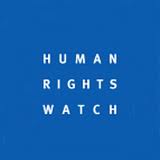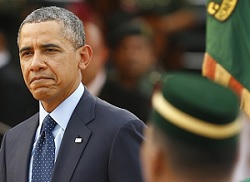PETALING JAYA, May 20 — Malaysian NGOs accused Putrajaya today of not doing enough to improve human rights in the country as pledged with the United Nations Human Rights Council.
According to the Coalition of Malaysian Non-Governmental Organisations (Comango), of the 150 human rights recommendations accepted by Malaysia in 2014, 60 of them were measurable and the situation was regressing in 57 per cent of these.
“We are seeing increasing violations of human rights and trend of growing impunity.
“For instance, instead of repealing the Sedition Act, we see an increasing trend of use of this Act for political motives since 2014,” Comango representative Sevan Doraisamy, who is also Suaram executive director, told a press conference on the coalition’s mid-term report on Malaysia’s progress in implementing its human rights pledges.
Sevan also said instead of taking steps to promote the rights of journalists and bloggers to freely exercise their rights to freedom of expression, Malaysia was strengthening laws to silence the media.
“The proposed amendments to the Communications and Multimedia Act 1998 will likely aim at controlling or even stifling political content online rather than facilitating freedom of expression and information,” he said.
Another Comango representative, Jerald Joseph, from human rights group Pusat KOMAS, said the country also showed little or no improvement in terms of national unity and social cohesion.
“When there was a racial riot in the Low Yat incident, we saw a raced-based IT mall built and this also does not gel well with the 1Malaysia concept that the government is championing,” he said.
Mohd Rizal Rozhan, of Selangor Civic Community Association (Empower), said Malaysia has five years to fulfill its recommendations that are aimed at improving the human rights situation on the ground together with some 193 members of the United Nation.
He said the recommendations comprise eight sectors—international obligation; civil rights; economic, social and cultural rights; marginalised groups; national mechanisms on human rights; trafficking in persons; national unity and human rights education.
Asked if it was fair to penalise the government given that it still have another two years to fulfil these, Jerald said it was up to Putrajaya to explain.
“We hope and wish for the government to call us in to work on these recommendations together but to date, we have not received any such invitation,” he said.
- See more at: http://www.themalaymailonline.com/malaysia/article/comango-malaysia-regressing-in-some-human-rights#sthash.SpRaJL0h.dpuf
According to the Coalition of Malaysian Non-Governmental Organisations (Comango), of the 150 human rights recommendations accepted by Malaysia in 2014, 60 of them were measurable and the situation was regressing in 57 per cent of these.
“We are seeing increasing violations of human rights and trend of growing impunity.
“For instance, instead of repealing the Sedition Act, we see an increasing trend of use of this Act for political motives since 2014,” Comango representative Sevan Doraisamy, who is also Suaram executive director, told a press conference on the coalition’s mid-term report on Malaysia’s progress in implementing its human rights pledges.
Sevan also said instead of taking steps to promote the rights of journalists and bloggers to freely exercise their rights to freedom of expression, Malaysia was strengthening laws to silence the media.
“The proposed amendments to the Communications and Multimedia Act 1998 will likely aim at controlling or even stifling political content online rather than facilitating freedom of expression and information,” he said.
Another Comango representative, Jerald Joseph, from human rights group Pusat KOMAS, said the country also showed little or no improvement in terms of national unity and social cohesion.
“When there was a racial riot in the Low Yat incident, we saw a raced-based IT mall built and this also does not gel well with the 1Malaysia concept that the government is championing,” he said.
Mohd Rizal Rozhan, of Selangor Civic Community Association (Empower), said Malaysia has five years to fulfill its recommendations that are aimed at improving the human rights situation on the ground together with some 193 members of the United Nation.
He said the recommendations comprise eight sectors—international obligation; civil rights; economic, social and cultural rights; marginalised groups; national mechanisms on human rights; trafficking in persons; national unity and human rights education.
Asked if it was fair to penalise the government given that it still have another two years to fulfil these, Jerald said it was up to Putrajaya to explain.
“We hope and wish for the government to call us in to work on these recommendations together but to date, we have not received any such invitation,” he said.
- See more at: http://www.themalaymailonline.com/malaysia/article/comango-malaysia-regressing-in-some-human-rights#sthash.SpRaJL0h.dpuf














